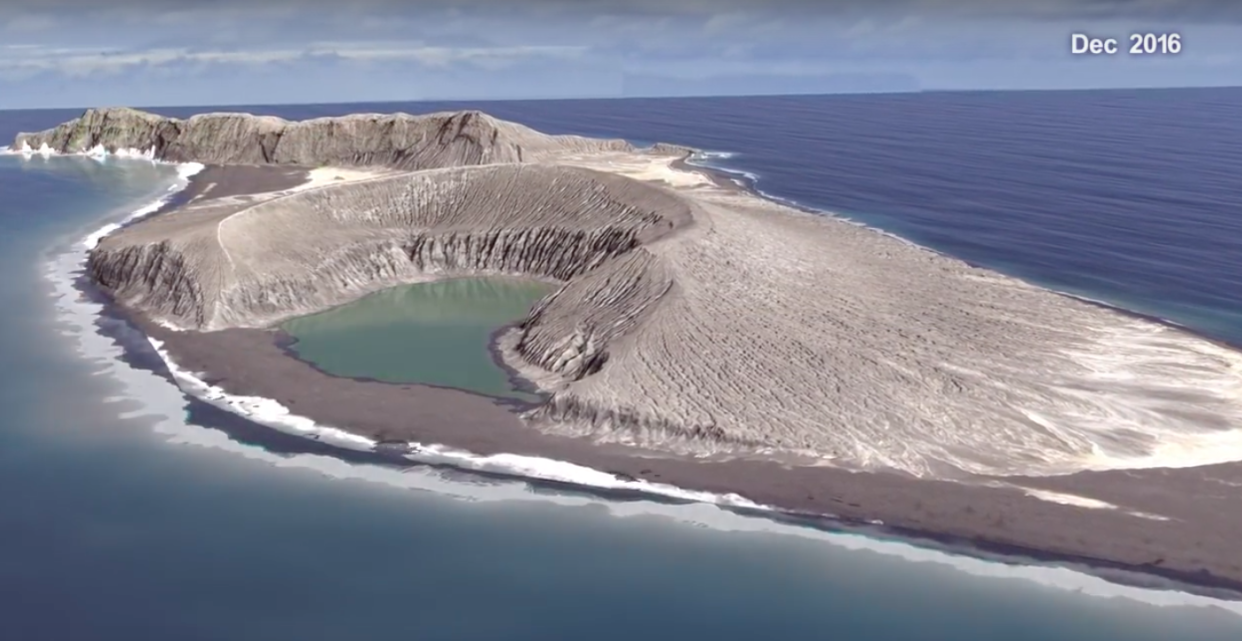Newly-created volcanic island in Tonga could last as long as 30 years

An island created by a volcano may last longer than anyone expected, with experts predicting it could be as much as 30 years.
The island, unofficially named Hunga Tonga-Hunga Ha’apai, was formed when an underwater volcano exploded and spewed out ash and rock in Tonga.
With cliffs as high as 400ft, the island was expected to erode in months but NASA scientists are now estimating the lifespan to be at least six years and as high as 30 years, according to National Geographic.

The island was formed during the explosion from December 2014, lasting until January 2015 and experts have been keeping a close eye on it ever since.
Using satellite images, NASA was able to determine how the volume of the island was shifting and after an initial rapid decrease, the rate of loss decreased, leading experts to conclude the island would last longer than they anticipated.
MOST READ ON YAHOO UK TODAY
Facebook ex-boss BANS his kids from using it as he says app ‘is ripping society apart’
Woman dies after being hit by FOUR vehicles – and none of the drivers stopped at the scene
House fire which killed three children was started ‘by flammable liquid poured down chimney’
Suspect in New York failed pipe bomb blast targeted subway ‘because it had Christmas posters’
The tallest pagoda in Asia has just been completely destroyed by fire
Temperatures plunge to -13c on UK’s coldest night in 20 months and Britons couldn’t cope
Dan Slayback, a remote-sensing specialist at NASA, said: “If we fit all of our data to date, we get a 26 to 30-year lifetime.”
Despite the estimate, it is still hard for scientists to determine exactly how long the island has left.
NASA said that environmental factors, including wave erosion, will play a key role in how long Hunga Tonga-Hunga Ha’apai lasts.



